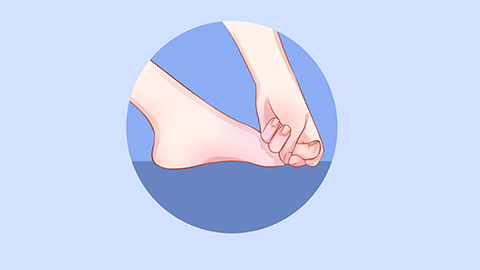How to treat leg cramps
Generally, leg cramps may be caused by strenuous exercise, cold exposure, hypocalcemia, lower extremity varicose veins, lumbar disc herniation, and other reasons. Patients can visit a regular hospital to choose general treatment, medication, and other methods for improvement. A detailed analysis is as follows:
1. Strenuous Exercise
During strenuous exercise, frequent contractions of the calf muscles lead to accumulation of local metabolic products and increased muscle excitability, making cramps more likely. Warm up adequately before exercising, stretch afterward, and hold each stretch for 15-30 seconds. Replenish fluids during exercise promptly and avoid excessive fatigue.
2. Cold Exposure
Exposure of calf muscles to cold stimulation can cause strong muscle contractions, leading to cramps. Keep legs warm and wear loose, warm clothing. Soak feet in warm water at about 40°C for 15 minutes before bedtime to promote leg blood circulation.

3. Hypocalcemia
Low concentration of calcium ions in the blood increases muscle excitability, causing calf cramps, often accompanied by numbness in hands and feet. Patients should take calcium supplements under a doctor's guidance, such as calcium carbonate D3 tablets, calcium gluconate tablets, or calcium citrate tablets. Also, consume more calcium-rich foods such as milk and soy products.
4. Lower Extremity Varicose Veins
Abnormal function of the venous valves in the lower limbs impedes blood flow, causing insufficient blood supply to the calf muscles and resulting in cramps, often accompanied by leg soreness and visible veins. Under medical guidance, patients may take medications such as Venoruton tablets, Diosmin tablets, or Hesperidin tablets. Avoid prolonged standing in daily life and elevate the lower limbs appropriately during rest.
When a herniated lumbar disc compresses nerve roots, it can cause spasms in the calf muscles controlled by the affected nerves, leading to cramps, possibly accompanied by low back pain and radiating leg pain. Under a doctor's guidance, medications such as celecoxib capsules, ibuprofen sustained-release capsules, or mecobalamin tablets may be used for relief. Also, avoid prolonged sitting or standing and rest on a firm mattress.
In daily life, maintain a balanced diet and ensure adequate intake of calcium and vitamin D. Engage in appropriate leg muscle exercises such as walking or swimming. Seek timely medical attention if frequent cramps occur.







